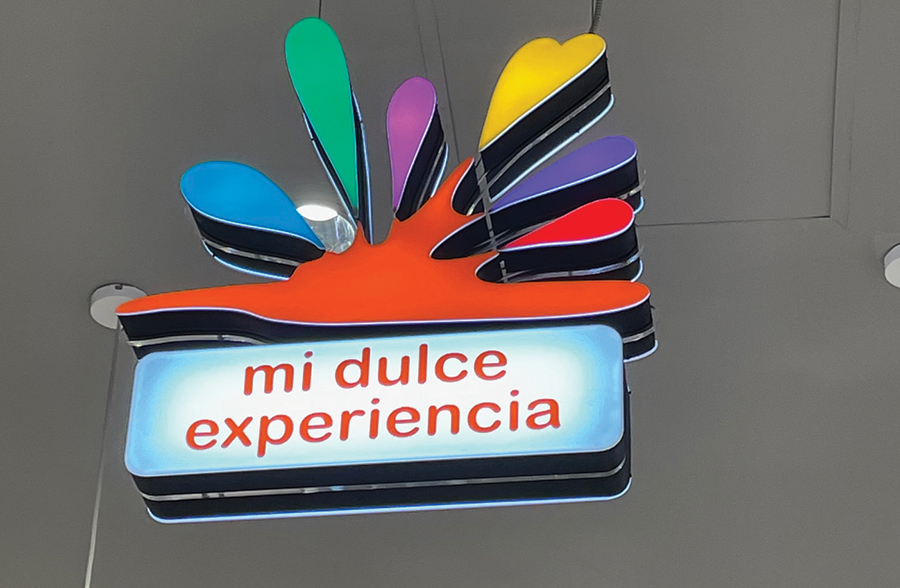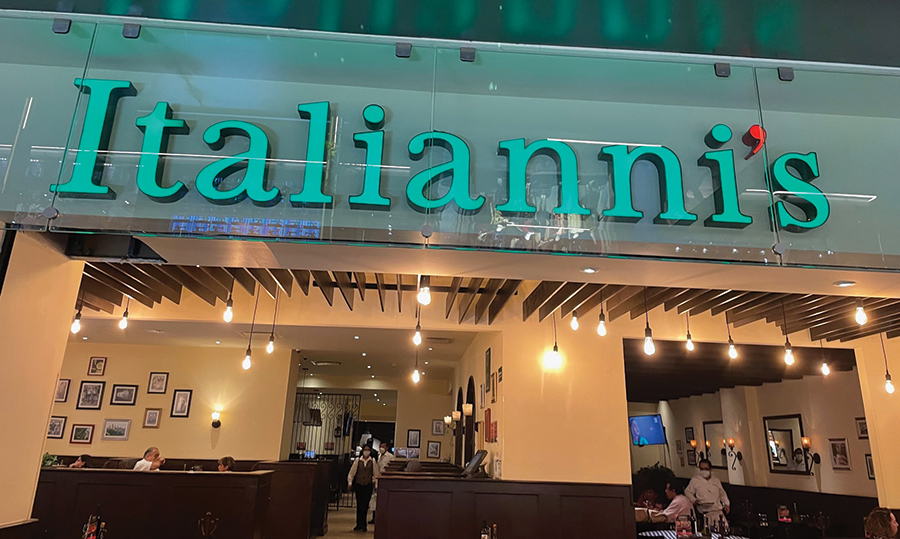Fabrication in signage
n outdoor sign is an important investment for many businesses. These signs are part of the company’s advertising strategy, commonly used to promote a business, a service, an event, increase brand recognition and attract customers. An outdoor sign is “the face” of the business.
Selecting the right material for a sign is not easy. Several aspects must be considered when designing a sign: budget, weather conditions where the sign will be installed, ease of cleaning and maintenance, durability, ability to repair the sign and find replacements, how it stands up to outdoor exposure, weight of the sign, how it will be installed, etc.
In the past decades, two performance plastic materials have become popular for creating attractive and brilliant signs: acrylic and polycarbonate. Both are easy to fabricate into letters using ordinary woodworking tools such as CNC routers and saws. Both are lightweight and each have their own advantages for sign construction. Both can be used in plain applications or thermoformed.

Acrylic sheets are used in signs because light travels nicely through the material creating eye-catching illumination. Cell cast and extruded acrylic are typically used for channel letters and lightboxes.
Acrylic sheets of 0.472″ up to 1.50″ are commonly used to make large channel letters or push-thru letters.
Polycarbonate sheet is also a good choice for signage. Sign-grade polycarbonate products typically have a coating that keep them from fading from the sun. Polycarbonate products have greater impact resistance than acrylic sheet and this product is a natural choice for very large signs.
Polycarbonate offers a greater heat resistance, higher impact strength, increased resistance to breakage and it is also more flame-retardant than acrylic.
Acrylic and polycarbonate sheets can be decorated, too. Vinyl application is the most common form of decoration. To apply vinyl is easier on acrylic. Polycarbonate absorbs moisture faster than acrylic does, so it will have more outgassing behind the vinyl.
Both products can be painted. In this regard, polycarbonate has a slightly better performance since it has a higher chemical resistance that allows paint to adhere better.
When screen printing and digital printing are used, polycarbonate sheets are ideal since they don´t need any preparation of the surface while acrylic needs adhesion promoters or additional coatings.
These are important aspects to take in consideration in order to make the right decision about which of these two plastics will be used for a sign:
Durability
- Acrylic and polycarbonate are weather resistant. Both products expand and contract due to changes in temperature without long-term or permanent shrinkage.
- Acrylic and polycarbonate can scratch. Therefore, wool rags and paper towels should be avoided.
- Acrylic chips easier than polycarbonate.
- Polycarbonate has low flammability, while acrylic burns slowly and is not recommended in areas where flames may be present.
Light Transmittance
- Acrylic has better clarity than glass, with a light transmittance of 92 percent.
- Polycarbonate has a light transmittance of 88 percent.
- Acrylic can be polished on the surface and the edges to restore its clarity, while polycarbonate cannot.
Strength
- Acrylic and polycarbonate are both half the weight of glass and both of them are much stronger than glass.
- General purpose acrylic has 17 times the impact resistance of glass. Polycarbonate has 250 times the impact resistance of glass.
- Under stress acrylic cracks more easily than polycarbonate.
- Both products are also shatterproof meaning that instead of shattering into lots of small and sharp pieces, acrylic and polycarbonate break into a few larger and duller pieces that are easy to handle.
Working Temperatures
- Acrylic can be used at temperatures ranging from -30°F/-34°C to 190°F/87°C.
- Polycarbonate can handle temperatures up to 240°F/115°C.
Drilling/Machining
- Acrylic will crack if it is drilled near an edge or with a drill bit not designed for plastics.
- Polycarbonate typically does not crack when being drilled even if drilled close to the edge with a standard drill bit.
Cleaning
- Acrylic and polycarbonate are easy to clean. Both can be cleaned with cotton cloths.
- The best way to clean acrylic sheet is to use mild soap and water.
- Polycarbonate has a higher chemical resistance than acrylic; it can be cleaned by harsher chemicals.
- Neither plastic should be cleaned with solvents.
Cementing
- Both plastics are cemented with adhesives specifically designed for them. Acrylic joints are cleaner than polycarbonate.

Plaza Satelite. Edo.Mexico. Mexico.
Now that you have a good idea of the advantages of acrylic and polycarbonate, how do you determine which material to choose for your project? The material selection depends on the characteristics of the signage project. If, for example, what you need is high impact resistance or a transparent fireproof material, then polycarbonate will be the right choice. If, on the other hand, you need a material that allows light to travel across the substrate, a greater variety of colors and finishes, and is more economical, then consider acrylic sheet.